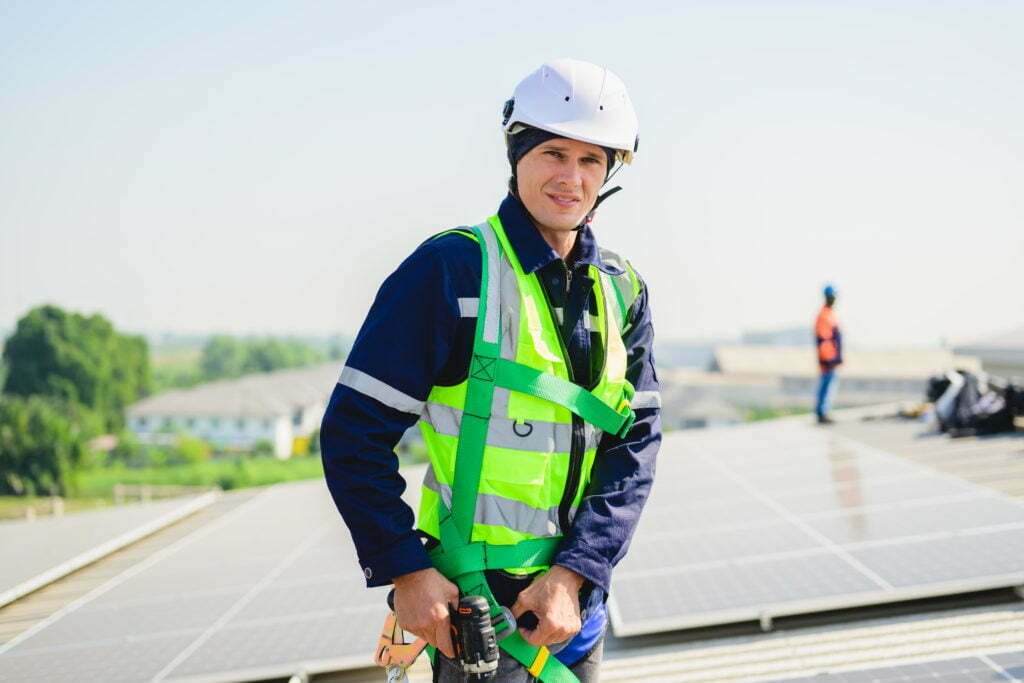- Assessing Energy Needs and Consumption
- How To Assess Energy Needs and Consumption
- Strategy For Managing Every Consumption
- Benefits of Assessing Energy Needs and Consumption
- Understanding Solar Panels and Their Benefits
- Benefits of Solar Panels
- Exploring Available Solar Panel Options
- Understanding the Reasons Why You Need Solar Panels
- How Do I Know If I Need Solar Panels?
- Environmental Considerations
Assessing Energy Needs and Consumption

In today’s world, where energy consumption is a significant concern, it’s essential for individuals and businesses alike to assess their energy needs and consumption. By understanding how much energy is required and how it is being used, we can make informed decisions to optimize energy usage, reduce costs, and contribute to a sustainable future. In this blog post, we will explore the importance of assessing energy needs and consumption and discuss effective strategies for evaluating and managing energy usage.
Why Assess Energy Needs?
Understanding Energy Requirements
Before taking any steps to optimize energy consumption, it’s crucial to have a clear understanding of your energy needs. This involves assessing the amount of energy required to power your daily activities or operations. By evaluating your energy needs, you can determine if there are any inefficiencies or areas where energy usage can be reduced. This understanding serves as the foundation for effective energy management.
Identifying Energy Consumption Patterns
Assessing energy needs also involves identifying energy consumption patterns. This includes determining when and where energy is being used the most. By analyzing consumption patterns, you can uncover opportunities for improvement and implement strategies to reduce energy waste during periods of low demand or in specific areas of your home or business.
How to Assess Energy Needs and Consumption

Conducting an Energy Audit
One of the most effective ways to assess energy needs and consumption is by conducting an energy audit. An energy audit involves a comprehensive evaluation of energy usage and includes an assessment of equipment, systems, and habits that impact energy consumption. During an energy audit, professionals can identify energy-saving opportunities, detect equipment malfunctions, and recommend efficiency upgrades.
Tracking Energy Usage
Another method to assess energy needs and consumption is by tracking energy usage. This can be done by installing energy monitoring systems that provide real-time data on energy consumption. By tracking energy usage, you can identify patterns, track the effectiveness of energy-saving initiatives, and pinpoint areas of high energy consumption that require attention.
Strategies for Managing Energy Consumption
Energy-Efficient Equipment and Appliances
Investing in energy-efficient equipment and appliances is a practical strategy for managing energy consumption. Energy-efficient devices are designed to use less energy without sacrificing performance. Look for appliances with ENERGY STAR ratings or energy-efficient labels when making purchasing decisions. Upgrading to energy-efficient lighting, HVAC systems, and office equipment can also contribute to significant energy savings.
Implementing Energy Conservation Measures
Implementing energy conservation measures can have a significant impact on energy consumption. Simple actions like turning off lights when not in use, using natural light whenever possible, and setting thermostats at optimal temperatures can lead to substantial energy savings. Encouraging employees or family members to adopt energy-conscious behaviors, such as unplugging idle electronics or using power-saving features, can further contribute to reducing energy consumption.
Benefits of Assessing Energy Needs and Consumption
Assessing energy needs and consumption can result in substantial cost savings. By identifying areas of high energy consumption and implementing energy-saving measures, businesses and individuals can reduce their energy bills significantly. Additionally, optimizing energy usage can help avoid unnecessary energy-related expenses, such as penalties for exceeding energy limits or peak demand charges.
Environmental Impact
Understanding and managing energy needs and consumption also has a positive impact on the environment. By reducing energy waste and implementing energy-efficient practices, we can lower greenhouse gas emissions, decrease reliance on fossil fuels, and contribute to a more sustainable future. Assessing energy consumption aligns with global efforts to combat climate change and promotes responsible energy usage.
Assessing energy needs and consumption is crucial for effective energy management. By understanding energy requirements, identifying consumption patterns, and implementing energy-saving strategies, individuals and businesses can optimize energy usage, reduce costs, and contribute to environmental sustainability. Take the time to evaluate your energy needs, track energy consumption, and implement energy-efficient practices to make a positive impact on both your budget and the planet.
Understanding Solar Panels and their Benefits
Solar energy has gained significant popularity as a sustainable and renewable energy source. Solar panels, also known as photovoltaic (PV) panels, play a crucial role in converting sunlight into electricity. In this blog post, we will explore the technology behind solar panels, how they work, and the numerous benefits they offer. Understanding solar panels and their benefits can empower individuals and businesses to embrace clean energy and contribute to a greener future.
How Solar Panels Work

The Photovoltaic Effect
At the heart of solar panels is the photovoltaic effect. Solar panels are made up of silicon cells that contain layers of semiconductor materials. When sunlight hits the solar panel, photons in the sunlight energize the electrons in the silicon atoms. This energized state allows the electrons to flow through the material, creating an electric current. The electric current is then captured and converted into usable electricity.
Types of Solar Panels
There are primarily two types of solar panels commonly used: monocrystalline and polycrystalline. Monocrystalline panels are made from a single crystal structure and are known for their high efficiency and sleek black appearance. Polycrystalline panels, on the other hand, are made from multiple silicon crystals and are slightly less efficient but generally more affordable. Both types of panels harness solar energy effectively but offer slight variations in performance and cost.
Benefits of Solar Panels
Renewable and Clean Energy
One of the most significant benefits of solar panels is their ability to generate renewable and clean energy. Unlike fossil fuels, which contribute to pollution and climate change, solar panels produce electricity using a renewable resource: sunlight. By relying on solar energy, we can reduce our dependence on non-renewable energy sources and decrease our carbon footprint.
Solar panels can provide substantial cost savings over time. Although the initial investment can be significant, the long-term financial benefits outweigh the upfront costs. Solar panels allow homeowners and businesses to generate their electricity, reducing or eliminating the need to purchase electricity from the grid. This can result in significant savings on energy bills, especially in areas with high electricity rates.
Return on Investment
Investing in solar panels can offer an attractive return on investment (ROI). As electricity prices continue to rise, the savings generated by solar panels become more valuable over time. Additionally, many regions offer financial incentives such as tax credits, rebates, and net metering programs that can further enhance the ROI. The lifespan of solar panels, typically around 25 to 30 years, allows for long-term financial benefits.
Energy Independence
Solar panels provide a level of energy independence by allowing homeowners and businesses to generate their electricity. This reduces reliance on the grid and the vulnerability to power outages or energy price fluctuations. With solar panels, individuals and businesses have greater control over their energy production and can secure a more stable and predictable energy source.
Environmental Impact
Choosing solar panels has a positive impact on the environment. Solar energy is clean, and renewable, and produces no greenhouse gas emissions during operation. By embracing solar power, we can contribute to reducing air pollution, combating climate change, and preserving natural resources. Solar panels offer a tangible way for individuals and businesses to be environmentally responsible and contribute to a sustainable future.
Understanding solar panels and their benefits is crucial for embracing clean energy and contributing to a sustainable future. Solar panels harness the power of sunlight, converting it into electricity while offering numerous advantages. From cost savings and return on investment to environmental impact and energy independence, solar panels provide a practical and environmentally friendly energy solution. By adopting solar energy, we can reduce our carbon footprint, lower our energy costs, and make a positive impact on the planet. Consider the benefits of solar panels and explore the possibilities of incorporating this renewable energy source into your life.
Exploring Available Solar Panel Options

Solar energy has gained significant traction as a clean and sustainable energy source. As more individuals and businesses embrace solar power, the market offers a wide range of solar panel options to choose from. In this blog post, we will explore the available solar panel options, including monocrystalline, polycrystalline, and thin-film panels. Understanding these options can help you make an informed decision when it comes to selecting the right solar panels for your specific needs.
Monocrystalline Solar Panels
Monocrystalline solar panels are renowned for their high efficiency and sleek appearance. They are made from a single crystal structure, typically composed of pure silicon. The uniform structure of monocrystalline panels allows for greater electron flow, resulting in higher energy conversion rates.
Advantages of Monocrystalline Panels
One of the main advantages of monocrystalline panels is their high efficiency, which means they can generate more electricity in a limited space. This makes them ideal for situations where space is a constraint. Additionally, monocrystalline panels tend to perform better in low-light conditions, making them suitable for areas with varying weather patterns.
Considerations for Monocrystalline Panels
While monocrystalline panels offer excellent performance, they tend to be more expensive compared to other solar panel options. Their manufacturing process involves a more intricate and precise method, which contributes to the higher cost. However, higher efficiency and long-term savings can often justify the initial investment.
Polycrystalline Solar Panels
Polycrystalline solar panels are another popular choice in the market. Unlike monocrystalline panels, polycrystalline panels are made from multiple silicon crystals. The manufacturing process involves melting and solidifying silicon fragments to form the panel’s structure.
Advantages of Polycrystalline Panels
Polycrystalline panels are known for their cost-effectiveness. The manufacturing process is simpler and requires less silicon material, resulting in a more affordable option. Polycrystalline panels also offer good performance in moderate to high sunlight conditions, making them suitable for regions with ample sunlight.
Considerations for Polycrystalline Panels
While polycrystalline panels are cost-effective, they tend to have a slightly lower efficiency compared to monocrystalline panels. The multiple-crystal structure can result in slightly reduced energy conversion rates. However, advancements in technology have significantly improved the efficiency of polycrystalline panels, narrowing the gap between the two options.
Thin-Film Solar Panels

Thin-film solar panels offer a flexible and lightweight alternative to traditional crystalline panels. They are made by depositing thin layers of photovoltaic material onto a substrate, such as glass or metal. Thin-film panels are known for their versatility and adaptability to various surfaces.
Advantages of Thin-Film Panels
One of the main advantages of thin-film panels is their flexibility. Unlike rigid crystalline panels, thin-film panels can be integrated into curved surfaces, allowing for more design options. They are also lightweight, making them easier to install and transport. Thin-film panels can perform well in low-light conditions, making them suitable for certain applications.
Considerations for Thin-Film Panels
While thin-film panels offer flexibility and lightweight features, they generally have lower efficiency compared to crystalline panels. They require more surface area to generate the same amount of electricity as traditional panels. Therefore, thin-film panels are often used in larger installations where space is not a limitation.
As solar energy continues to gain momentum as a sustainable energy source, exploring available solar panel options becomes crucial in making an informed decision. Monocrystalline panels offer high efficiency and excellent performance in limited space, while polycrystalline panels provide a cost-effective alternative. Thin-film panels offer flexibility and versatility in design. Each option has its own set of advantages and considerations, so it’s important to assess your specific needs and goals when selecting solar panels for your project. By understanding the available options, you can make a well-informed choice and embark on your solar journey with confidence.
Understanding the Reasons Why You Need Solar Panels
Solar energy has emerged as a clean, renewable, and sustainable source of power. Harnessing the energy of the sun through solar panels can provide numerous benefits for homeowners and businesses alike. In this blog post, we will explore the reasons why you need solar panels, including cost savings, environmental impact, energy independence, and government incentives. Understanding these reasons can help you make an informed decision and unlock the full potential of solar power.
Cost Savings
Lowering Your Energy Bills
One of the primary reasons why you need solar panels is the potential for significant cost savings on your energy bills. Solar energy allows you to generate your own electricity, reducing your reliance on the grid and the associated costs. By harnessing the power of the sun, you can offset or even eliminate your monthly electricity expenses, providing long-term financial benefits.
Return on Investment (ROI)
Investing in solar panels can yield attractive returns over time. While there is an initial cost involved in purchasing and installing solar panels, long-term savings on energy bills can help you recoup your investment. Additionally, some regions offer incentives such as net metering or feed-in tariffs, allowing you to sell excess energy back to the grid and earn additional income.
Environmental Impact
Renewable and Clean Energy
Solar panels produce electricity by converting sunlight into usable energy, resulting in zero greenhouse gas emissions. By utilizing solar power, you can significantly reduce your carbon footprint and contribute to the fight against climate change. Embracing solar energy is a sustainable choice that helps protect the environment and preserve natural resources for future generations.
Reduced Air and Water Pollution
Traditional methods of electricity generation, such as burning fossil fuels, contribute to air and water pollution. Switching to solar power reduces the reliance on these polluting energy sources and helps improve air quality and water conservation. Solar panels have a minimal impact on the environment and can play a vital role in creating a cleaner and healthier planet.
Energy Independence
Protection against Rising Energy Costs
The cost of electricity from the grid can fluctuate over time due to various factors, including fuel prices and infrastructure maintenance. By installing solar panels, you can generate your own electricity and reduce your dependence on the grid. This provides protection against rising energy costs and provides stability in your energy expenses, allowing you to budget more effectively.
Reliability and Resilience
Solar energy offers a decentralized and distributed energy generation system. In the event of power outages or grid failures, solar panels with battery storage can provide a reliable source of electricity, ensuring that essential appliances and systems in your home or business can continue to operate. This enhances your energy resilience and reduces dependence on external sources of power.
Government Incentives
Financial Support and Incentive Programs
Many governments around the world recognize the importance of renewable energy and offer incentives to encourage solar panel adoption. These incentives can include tax credits, rebates, grants, or low-interest financing options. By taking advantage of these programs, you can further reduce the upfront costs of installing solar panels and accelerate your return on investment.
Net Metering and Feed-in Tariffs
Net metering and feed-in tariff programs allow you to sell excess electricity generated by your solar panels back to the grid. This not only provides an additional source of income but also promotes the growth of renewable energy by incentivizing solar panel installations. These programs vary by region, so it’s important to research and understand the specific incentives available in your area.
The reasons to embrace solar panels are compelling. From cost savings and environmental impact to energy independence and government incentives, solar power offers numerous benefits for homeowners and businesses. By understanding the reasons why you need solar panels, you can make an informed decision and take a proactive step toward a sustainable future.
How Do I Know If I Need Solar Panels?

Solar panels have become an increasingly popular option for generating clean, renewable energy. They offer numerous benefits, including cost savings, environmental impact, and energy independence. However, determining whether you need solar panels for your home or business requires careful consideration. In this blog post, we will explore key factors to help you assess if solar panels are right for you. By understanding these factors, you can make an informed decision and determine if solar panels are a suitable investment for your energy needs.
Assessing Your Energy Needs
Current Energy Consumption
The first step in determining if you need solar panels is to assess your current energy consumption. Review your monthly electricity bills to understand your average energy usage. Solar panels are most beneficial when they can offset a significant portion of your electricity needs. If your energy consumption is relatively high, it may indicate that solar panels can provide substantial cost savings over time.
Long-Term Energy Goals
Consider your long-term energy goals when evaluating the need for solar panels. Are you looking to reduce your carbon footprint and rely more on renewable energy sources? Do you want to become energy-independent or protect against rising electricity costs? Solar panels can help you achieve these goals by providing clean, sustainable energy and reducing your reliance on the grid. Clarifying your energy goals will help determine if solar panels align with your vision.
Evaluating Financial Considerations
Upfront Investment
Solar panel installations involve an initial investment. Evaluate your budget and financial situation to determine if you can afford the upfront costs. It’s essential to consider the long-term financial benefits of solar panels, such as energy savings and potential incentives. Many regions offer financial incentives, tax credits, and financing options that can help offset the initial investment and improve the return on investment (ROI).
Energy Cost Savings
Assess the potential cost savings associated with solar panels. By generating your own electricity, you can offset or even eliminate your monthly electricity bills. Consider the payback period for the investment and calculate the potential energy cost savings over the system’s lifespan. This analysis will help you understand the financial benefits of solar panels and determine if they align with your financial goals.
Understanding Solar Feasibility
Sunlight Availability
Solar panels require sunlight to generate electricity effectively. Evaluate the amount of sunlight your property receives throughout the year. Factors such as shading from trees, nearby buildings, or geographical location can impact the solar potential. If your property receives ample sunlight, solar panels can harness the energy efficiently. However, if your property is heavily shaded or doesn’t receive sufficient sunlight, solar panels may not be as effective.
Roof Suitability
Assess the suitability of your roof for solar panel installation. Consider the size, orientation, and condition of your roof. Ideally, the roof should have enough space to accommodate the desired number of solar panels. Additionally, a south-facing orientation with minimal shading provides optimal solar exposure. Evaluate the age and condition of your roof, as installing solar panels typically involves a long-term commitment.
Environmental Considerations

Environmental Impact
Consider the environmental impact when assessing the need for solar panels. Solar energy is clean and renewable, producing no greenhouse gas emissions during operation. By adopting solar panels, you can significantly reduce your carbon footprint and contribute to a more sustainable future. If environmental stewardship is important to you, solar panels can align with your values.
Energy Independence
Solar panels offer energy independence by reducing reliance on the grid. This can be particularly valuable during power outages or periods of high electricity demand. If you prioritize energy security and independence, solar panels provide a reliable source of electricity, giving you peace of mind during unexpected situations.
Determining if you need solar panels requires careful consideration of various factors. Assessing your energy needs, evaluating financial considerations, understanding solar feasibility, and considering environmental factors are essential steps in making an informed decision. By understanding these factors and their relevance to your situation, you can determine if solar panels are the right choice for you. Remember to consult with reputable solar installers and conduct a thorough assessment of your property to ensure an accurate evaluation. With the potential for cost savings, environmental impact, and energy independence, solar panels can be a valuable investment in your sustainable future. Discover the incredible benefits of solar energy and take a step towards a greener future. Go Solar Today and Power Your World with the Sun!

